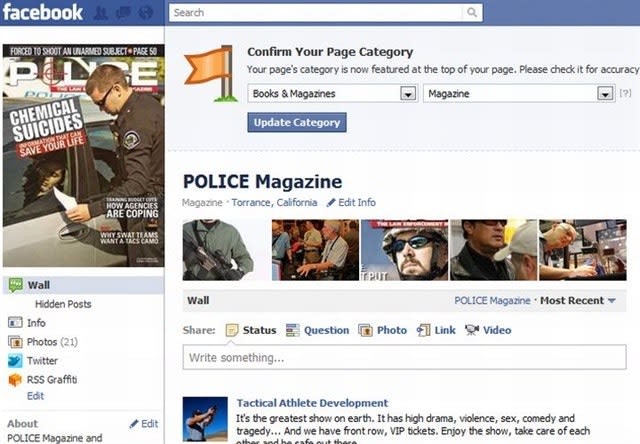Not a day goes by that I don't read another article about an officer being investigated, disciplined, fired, or sued over a posting on a social networking site.
We may be tempted to just steer clear of Facebook, yet this social site isn't going away anytime soon, and we as the users must remember that we have control. So instead of putting yourself at risk, how about using a little common sense with the social sites.
I personally am a Facebook user; some may say an addicted one. Not only do I have a personal page, I also created and administer my department's fan page. I truly believe that social networking sites are useful tools.
Many of my fellow law enforcement officers are also Facebook users while some hold steadfast that they will never use it. Many officers are against putting any information out on the Web, and I respect that choice. If you do choose to use a social site, I would like to encourage you to consider the following suggestions to avoid trouble.
Your number one concern should be your privacy settings that cover how you share information. Facebook defaults these settings to allow as much of your personal information as possible to be accessible to everyone! Of course, you'll want to make some information available — after all, that's the purpose of social networking. People should be able to locate you. However, you should use as high a privacy setting as possible to control who has unlimited access to your page.
Next, know your "friends." Most social sites allow you to grant access to friends. Many view social networks as a contest to see how many people they can be friends with. This just opens up doors for your information to be leaked out to the undesirables. Also, even if you do know your friends, consider who they are. Are they local criminals? Are they defense lawyers, area judges, or your administrators? It may sound ridiculous, but I know officers who have these connections.
Thirdly, we all know we live in a glass bubble as officers. We work in the public eye and can't always control who is photographing us. You may not be able to stop others from posting pictures or videos of you. However, you can control the "tag" that links you to that photograph. Anyone can tag you in a photo, video, or note. You can remove the tag. Once that has been done, you can't be retagged.
Lastly, if unwanted people do find you, you have the ability to block them. This will limit them from viewing anything you post, and will hinder any communication with you.
Ultimately, you're in control of what's posted on your page. The basic rule is this — when in doubt, don't post it. Law enforcement is a highly scrutinized field, and what we do or don't do is always in question.
Before you post something, consider this — can you sit in front of your chief and justify it? Or better yet, can you sit in front of a judge? If not, just don't post it! Nothing you post is worth your job.













